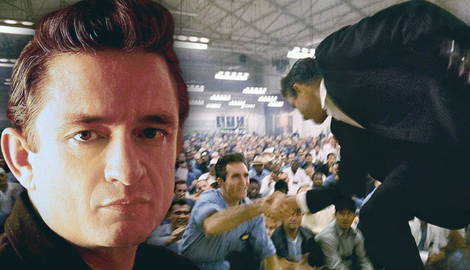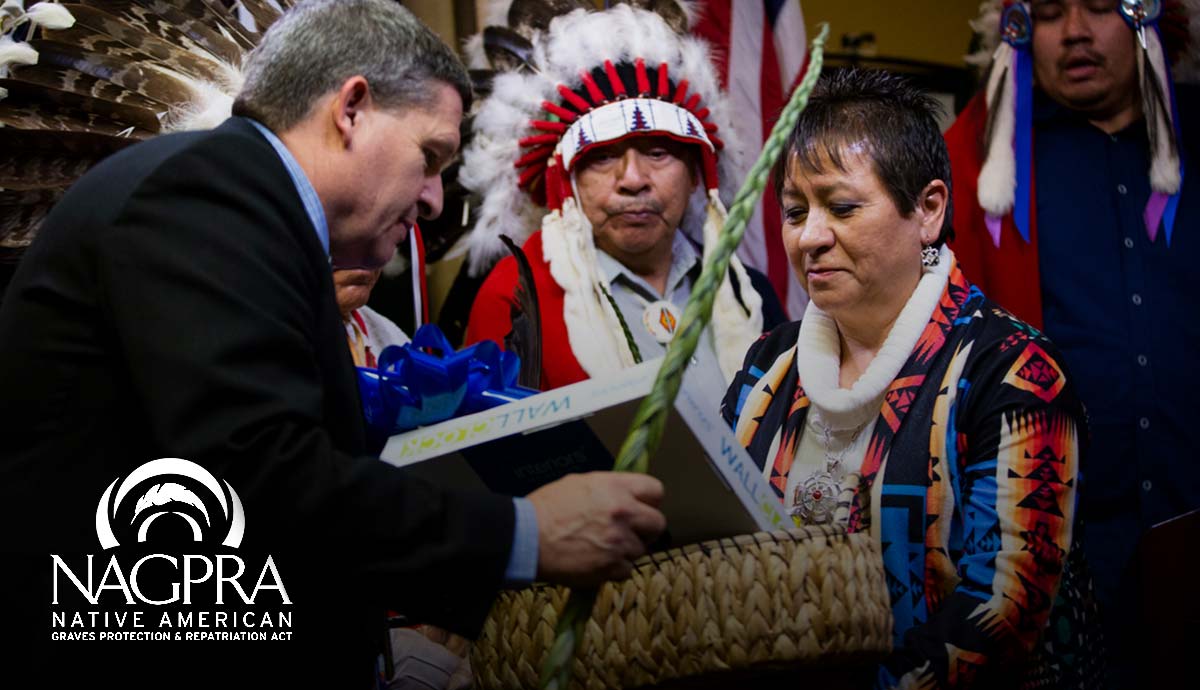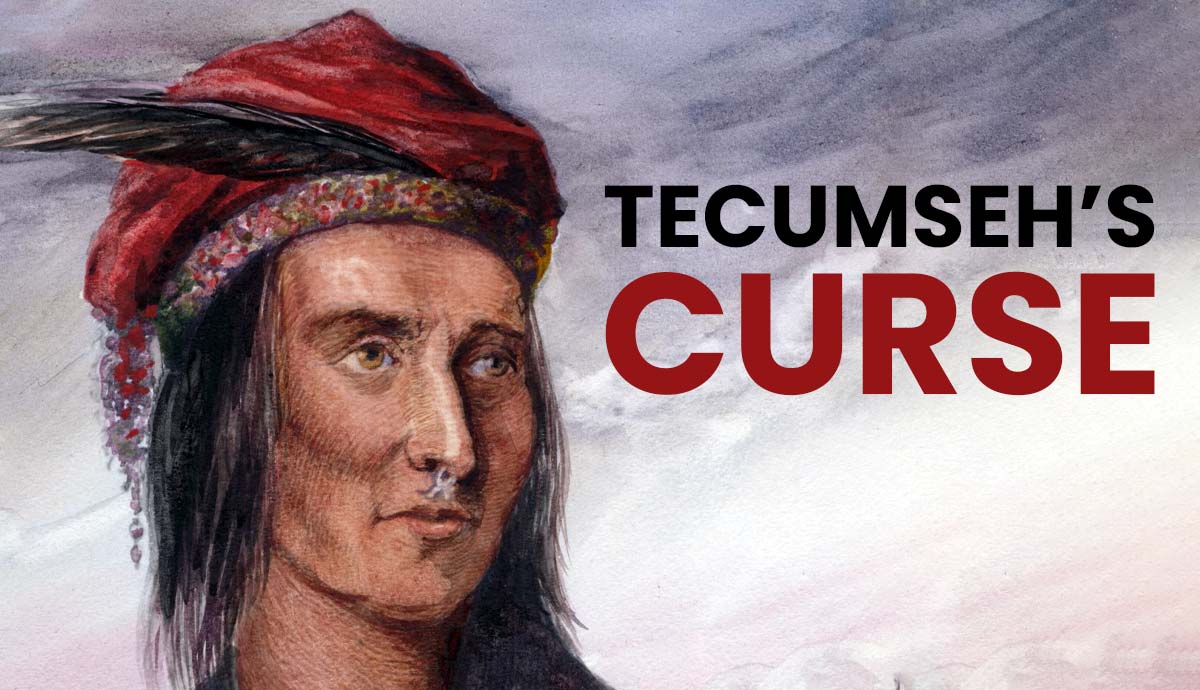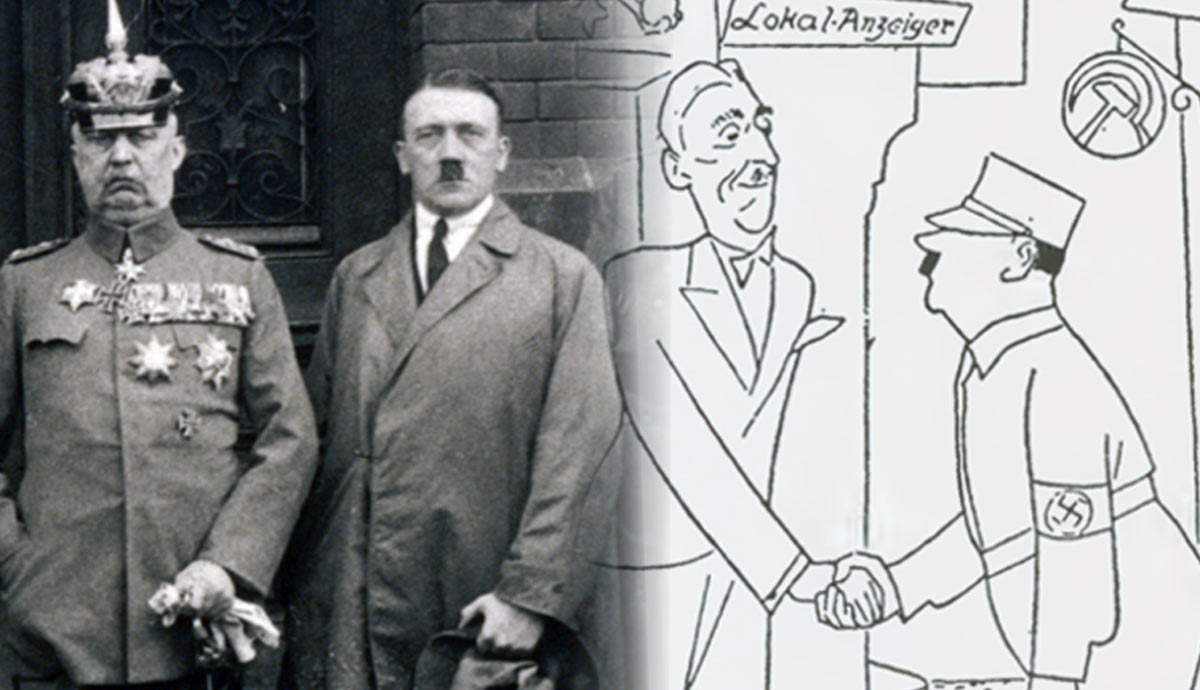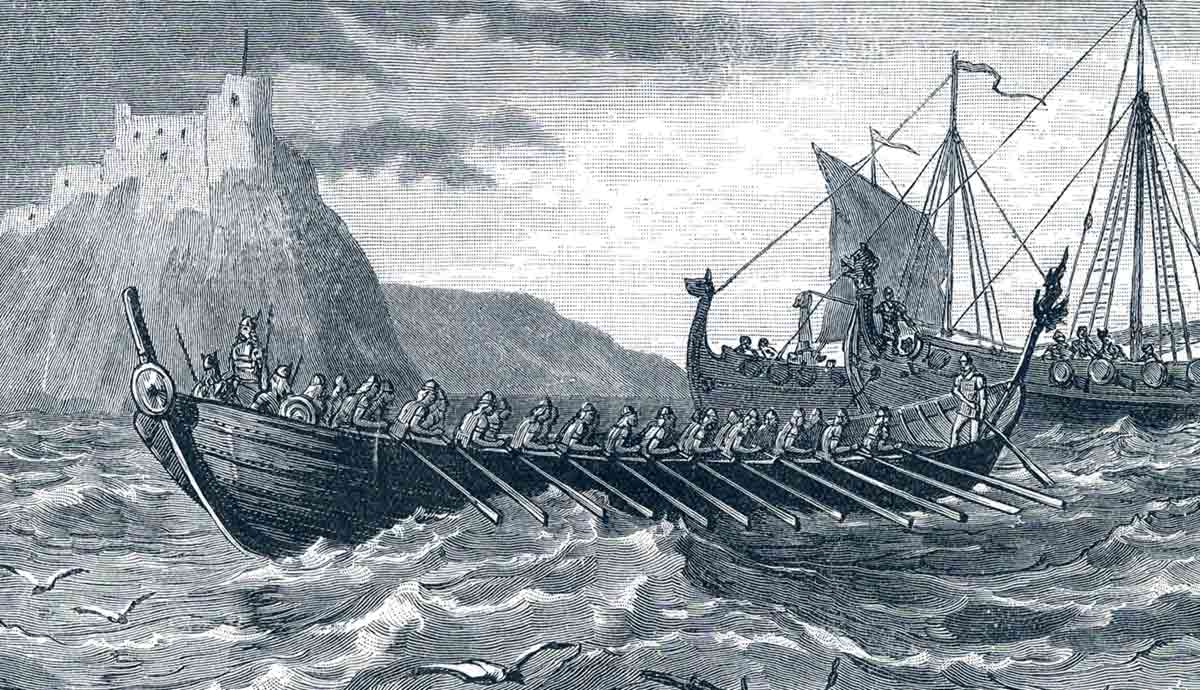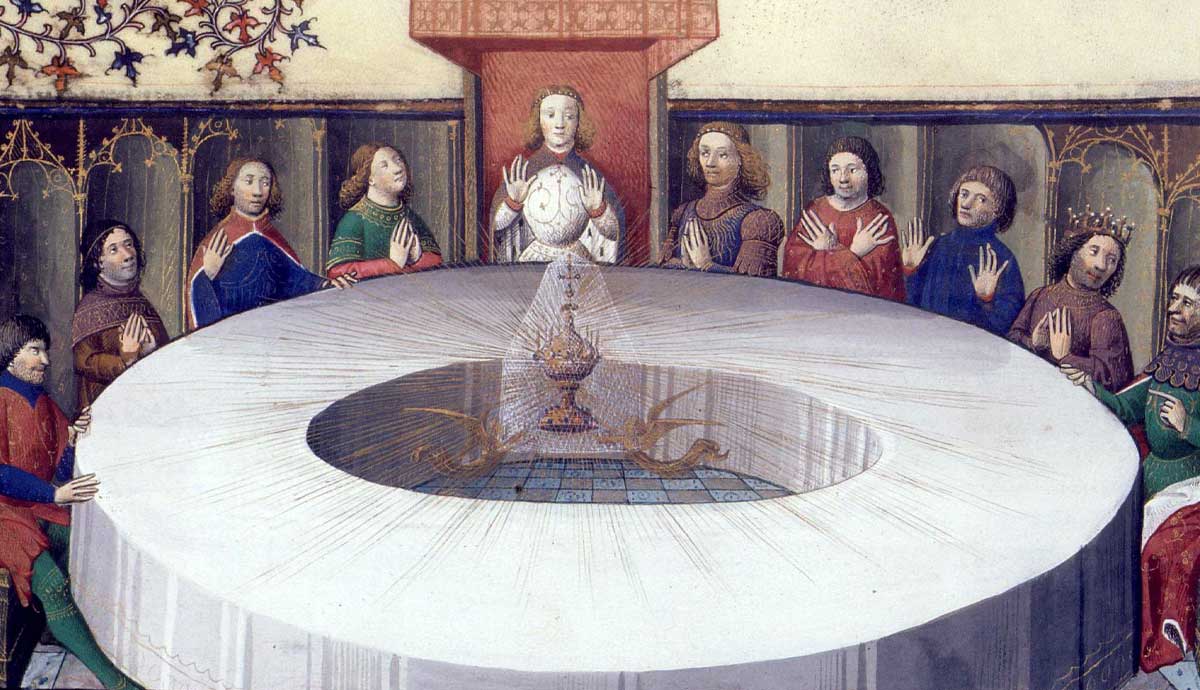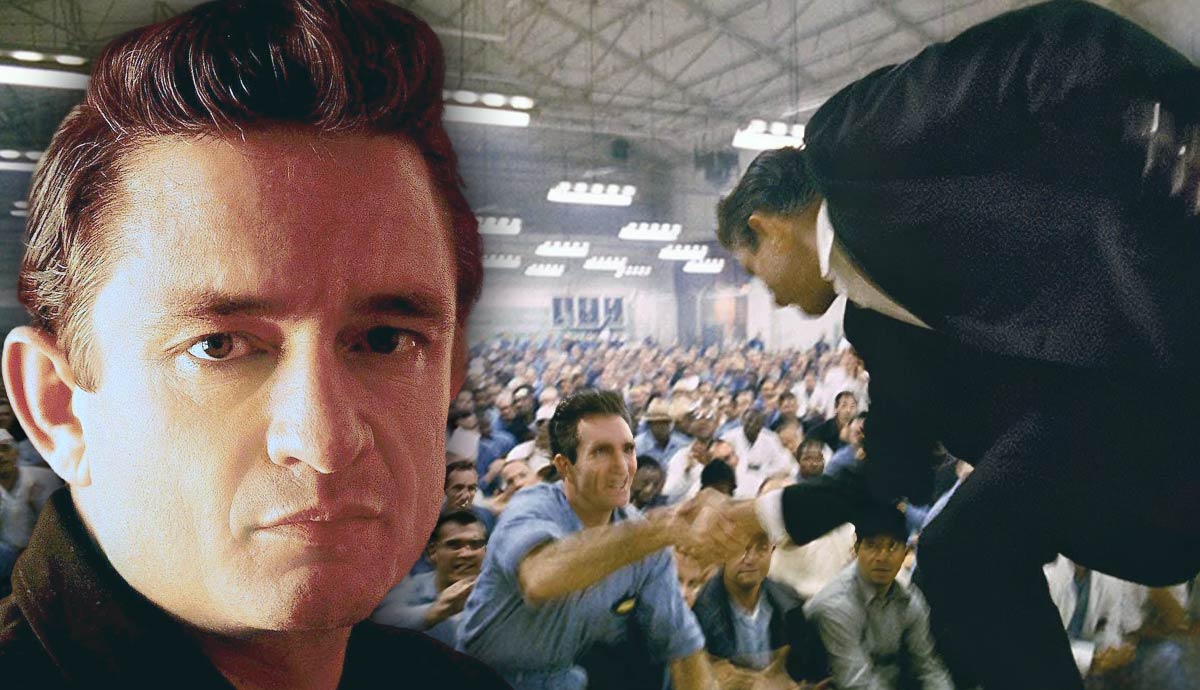
A complicated man who sometimes seemed full of contradictions, Johnny Cash was nevertheless dedicated to the people and convictions he held dear to his heart. Rising from humble Arkansas beginnings, Cash would make his mark in the music world, creating a career full of accolades that spanned much of the 20th century and into the 21st. Releasing new music right up until his death (and even after), Cash continues to inspire fellow musicians and fans alike with the iconic impact of a sometimes tumultuous life.
A Modest Start

Born February 26, 1932, in the midst of the Great Depression, John R. Cash grew up in a struggling farm family. Known as J.R. to his loved ones, Cash had six siblings. When he was three, his parents, Ray and Carrie, moved their children to Dyess, Arkansas to take advantage of a New Deal program that offered families farmland. There, Cash lived out his childhood in a five-room home, farming 20 acres of mostly cotton alongside his family.

Theirs was a tough existence, and something Cash found respite in was music. His mother was a fan of folk and gospel music and shared that love with her children. J.R. began writing songs at the age of twelve. His mother recognized how much he loved music and scrimped and saved so that he could take voice lessons. However, after just a few lessons, his teacher told him to stop taking lessons, as his natural voice was too beautiful to deviate from.
Devastation & Inspiration

Of his six siblings, J.R. was especially close with his brother Jack, who was just two years older than him. One morning in May 1944, 14-year-old Jack decided to go to work at the local high school woodshop rather than go fishing with his younger brother, who begged him to come to the fishing hole instead. Jack declined, focusing on the three dollars he could bring in to help the family if he went to work. A few hours later, J.R. was startled when his father’s car pulled up to the fishing hole, Ray yelling at him to get in. Jack had been grievously injured in an accident in the wood shop.

Jack had been attempting to cut a board using a table saw on which the guard had been removed. The blade cut Jack from stomach to groin but didn’t kill him instantly. He was rushed to the hospital and underwent surgery, but the surgeon instructed the family “not to get too much hope.” However, Jack persisted in the hospital for a week before succumbing to his injuries.
J.R. struggled extensively with Jack’s death for the rest of his life. His father, under the influence of alcohol, once remarked, “Too bad it wasn’t you instead of Jack.” It was no coincidence that J.R. started writing songs around this time, and he didn’t have to look very far for inspiration. His brother Jack had ambitions of becoming a minister and spoke of seeing heaven just before his death. This religious inspiration would remain present in Cash’s music for the rest of his career.
Early Careers

In 1950, J.R. graduated from high school and left the family farm in search of a job. He worked briefly in an automobile plant in Pontiac, Michigan before joining the Air Force, where he became known as “John R. Cash” as a full first name was required to enlist. He served for four years, the bulk of which he spent in Landsberg, West Germany as a radio intercept officer, monitoring Soviet communications.
In a bizarre piece of historical trivia, Cash is believed to be the first American to learn of Joseph Stalin’s death as a result of his position. Cash continued to enjoy music during his time in the Air Force, writing several songs that would later help propel him to fame and performing with fellow service members at bars.

Cash was discharged in 1954 and settled in Memphis, Tennessee. He began working as an appliance salesman but was still performing in his free time. He teamed up with two mechanics named Luther Perkins, who played electric guitar, and Marshall Grant, who played upright bass, and the three would jam regularly. They became fast friends and sang mostly gospel music, performing at church and on local radio.
Love & Marriage

After his Air Force stint, Cash married Vivian Liberto, a young woman he had met during his military training in Texas before deployment. The two had four daughters–Rosanne, Kathy, Cindy, and Tara–born between 1955 and 1961, but a troubled marriage.
During the tumultuous 60s, Cash and Vivian were attacked for Vivian’s appearance, as she had a dark complexion. The Ku Klux Klan and media entities attacked the couple, accusing them of an illegal interracial marriage (it would not become legal until 1967) and calling Vivian “black” (Vivian’s daughters later learned that she did have a formerly enslaved ancestor in 2021).
To his wife’s chagrin, Cash seemed to inflame the situation by listing the “whites only” schools his wife had attended and explaining her Italian heritage rather than ignoring the attacks (as she wanted to do) or perhaps picking up a torch for the Civil Rights movement. The Cash’s ended up suing some parties for libel. The stress of media attention and other public attacks, along with affection from another woman, June Carter, did nothing to help the couple’s marriage, and they divorced in 1966.
Starting at Sun Records

In 1954, Cash, Perkins, and Grant generated the courage to visit a local Memphis recording studio called Sun Records and ask for a blind audition. They were granted one and sang an array of gospel songs for producer Sam Phillips, who told them to “go home and sin, then come back with a song I can sell.” Cash and his crew returned with more material, including some he had written during his time in Germany, and managed to win Phillips over.
Their first recordings, “Hey Porter” and “Cry Cry Cry,” were released in 1955 and were moderately successful. The next album, Folsom Prison Blues, made the country top 5, and the next release, “I Walk the Line,” reached number 1 on the country charts and made it into the pop top 20. Johnny Cash and the Tennessee Two became the first to release a long-playing album on the Sun label. However, in 1958, the group would leave Sun Records for Columbia.

Cash’s musical success continued, as he charted at least two hit singles a year for 33 years running. He collaborated with groups and individuals from across genres, including U2, Bob Dylan, Waylon Jennings, Willie Nelson, and Kris Kristofferson. Unlike many artists, he never faded away from the public consciousness. Known as “the Man in Black,” he was famous for his solid black outfits and consistent greeting to concertgoers: “Hello, I’m Johnny Cash.”
1980 would see him elected the youngest living person to the Country Music Hall of Fame (he would be inducted into the Rock & Roll Hall of Fame 12 days later). He released his final studio album in November 2002, less than a year before his death.
On the Big Screen

Cash wasn’t just famous in the music industry; he starred on the silver screen as well. Some of his most popular films were A Gunfight alongside Kirk Douglas (1971) and The Last Days of Frank and Jesse James (1986). He appeared in TV shows such as Dr. Quinn, Medicine Woman, The Muppet Show, and The Simpsons, appealing to a wide variety of audiences. In addition, he hosted a prime-time variety show, The Johnny Cash Show, which often featured the work of new songwriters.

Johnny was also an author, penning two autobiographies in longhand, one in 1975 and another in 1998. He also wrote a biblical fiction novel about the Christian Apostle Paul, a man he identified deeply with as another complicated soul, entitled Man in White.
Battling Demons

Though Cash had many successes, they were accompanied by personal struggles. Addiction played an almost constant role in Cash’s life, with pills, alcohol, and amphetamines contributing to his divorce, health troubles, and poor decisions. He was arrested multiple times and was found on the brink of death in 1967 after a drug binge. At one point, the 6’2” Cash was down to 150 pounds due to his drug use, with a haggard and skeletal appearance. Many thought his career–and perhaps his life–was over.

However, Cash survived with help and support from an old friend, former touring partner, and future wife, June Carter. June encouraged him to refocus on his Christian faith and values and helped him attain treatment multiple times. The two were married in 1968 and would remain so until June’s death in 2003. A talented musician in her own right, Carter wrote Cash’s hit “Ring of Fire” with Merle Kilgore. Carter and Cash had one son, John Carter Cash, born in 1970.
The Prison Concerts: Making an Impact on Inmates

After watching a documentary about California’s Folsom Prison while stationed in Germany, Cash wrote his iconic “Folsom Prison Blues.” Inmates from all over loved the song and wrote to Cash, asking him to come play for them. His first prison show was at Huntsville State Prison in Texas in 1957. He often cited the prisoners as his most enthusiastic audiences, and as someone who had suffered legal troubles and addiction himself, he could empathize with what many of these men had experienced. Cash gave several prison performances over his career, recording live albums at several of them. He even performed at overseas penitentiaries.
Life After Death

As his life progressed, Cash’s addiction challenges became more well-managed, and he settled into a relaxed life with his faithful wife at his side. However, his career was far from over. In the early 90s, Cash reconnected with Rick Rubin, former Columbia executive and producer who founded the American Recordings label. Rubin has worked with dozens of influential artists spanning genres, including the Beastie Boys, Weezer, Slayer, and Jay-Z.
The two collaborated for Cash’s final series of albums, beginning in 1994 and concluding just before his death. Some of the songs on the American Recordings albums were written by Cash, and others were covers, such as Cash’s haunting rendition of Nine Inch Nail’s “Hurt,” which would be nominated for and win several Grammy, MTV, and CMA accolades.

Cash passed away from complications from diabetes in September 2003. Some believe a broken heart contributed to his death as well, as he had lost June earlier that year. Despite his physical absence from the plane of existence, Cash’s music wasn’t done. In April 2004, American Recordings released My Mother’s Hymn Book, a gospel album that returned Cash’s sound to its true roots in an homage to Carrie Cash.
This was followed by American V: A Hundred Highways in 2006 and American VI: Ain’t No Grave in 2010. Out Among The Stars, a set of unreleased songs discovered by John Carter Cash at his parents’ home in 2012, was released in 2014. This is the last album of new music released to date.

J.R. Cash came from hardscrabble beginnings to build a legendary life. He was a complicated figure, beloved by many, but not without his demons. Cash never denied his failings as a man and remained fiercely dedicated to his beliefs. With an impressive career spanning decades, his star never burned out but still shines brightly, inspiring America’s music scene across genres.
